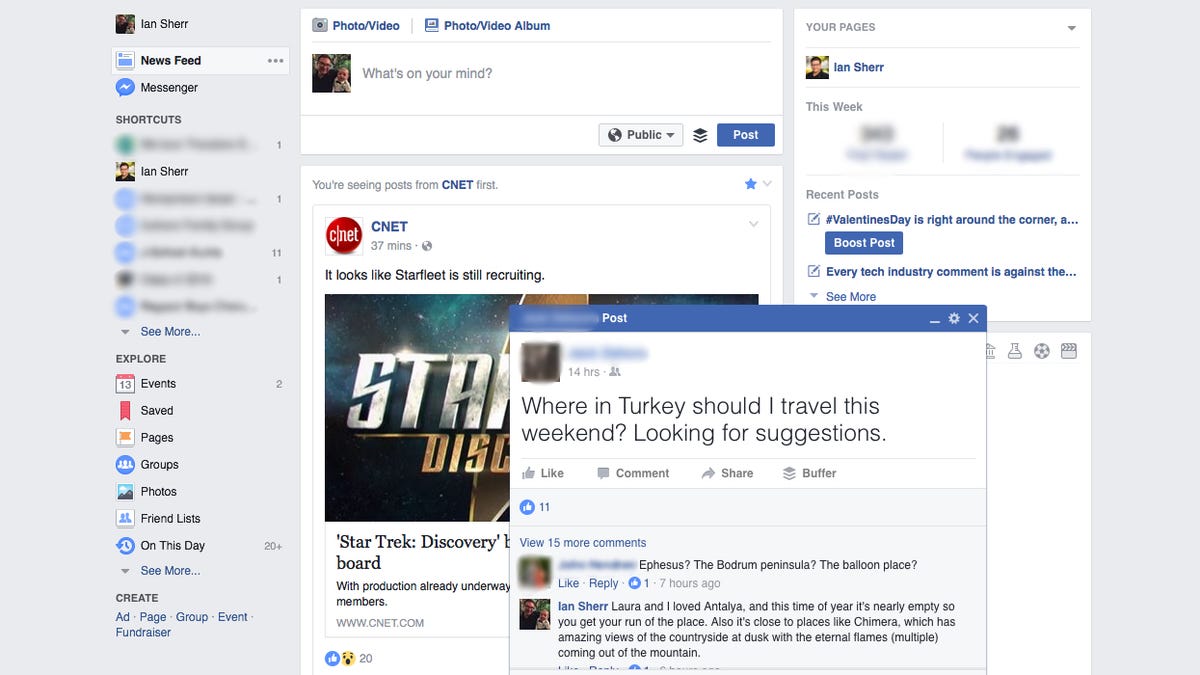Facebook is testing pop-up posts
The social network is making some of your friends' posts look like chat windows in your desktop browser.

Facebook is testing pop-up posts, similar to how chat windows look on your browser.
Facebook likes chat windows so much, it's trying them out on your friends' posts too.
The social network is testing out a feature on its desktop site that pushes certain posts to the bottom edge of your web browser, similar to what it does when you get an instant message from a Facebook friend. Gmail does the same thing with instant messages and its email composer.
The pop-out Facebook posts have a text field that lets you comment. There's also an option to either see the full post or hide it.
"We've heard from people that they would like an easier way to participate in conversations on a post while they are still in News Feed so we are testing a new option that opens up a window when someone comments on your post, replies to your comment or tags you in a comment," a Facebook spokeswoman said. "You can always hide the conversation or turn off notifications from within the dropdown menu of the post."
It's not clear how many users are part of the test, though the spokeswoman said it's a "small test." But Facebook often tests out new features with a small percentage of its 1.86 billion users, before releasing them widely to everyone.
It's also unclear how long the social network has been testing it, or what criteria prompts Facebook to give a post that kind of treatment.
For Facebook, the more eyeballs on a post, the more the social network can woo advertisers. So, anytime Facebook can get you to spend more time reading, liking or scrolling around, it's a win for the social network.
CNET Magazine: Check out a sampling of the stories you'll find in CNET's newsstand edition, right here.
Life, disrupted: In Europe, millions of refugees are still searching for a safe place to settle. Tech should be part of the solution. But is it? CNET investigates.



